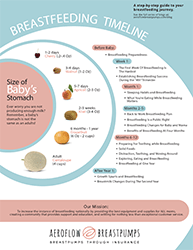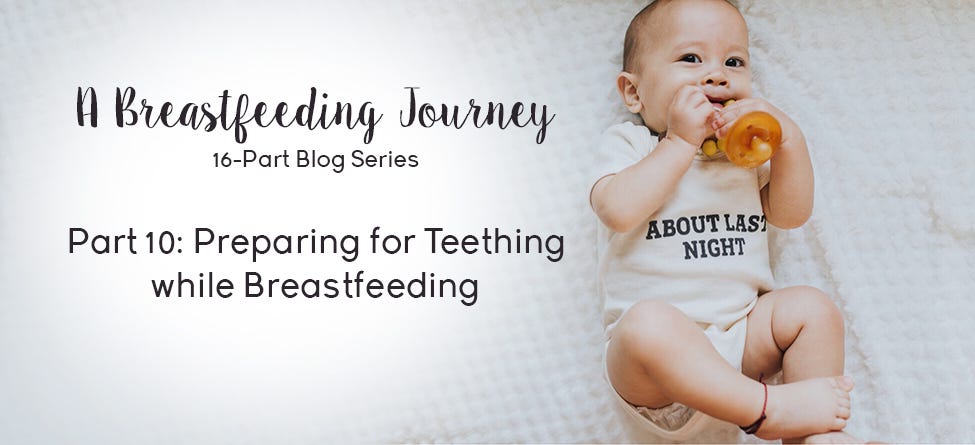By the third and fourth month of breastfeeding, you have provided your baby with a lowered risk of Type 1 childhood diabetes and asthma. Additionally, you have given your baby valuable immunities and nutrients that will help them fight off infections and viruses more efficiently! Congratulations!

To view or download the entire Breastfeeding Journey, click the image above!
Two Tips for Breastfeeding at Four Months:
- Don’t worry if your baby seems hungry all the time. There is a big growth spurt around the third and fourth month and they will be nursing more frequently. Your body should still be keeping up with demands and making enough milk to satisfy your baby’s appetite. Talk to your lactation consultant or doctor before supplementing with formula if you are concerned about your milk production. They will be able to help you figure out if the baby is getting enough to eat. Looking for a Lactation Person? Use our helpful Lactation Support Directory to find one in your area!
- The calories it takes to keep breastfeeding will help you shed some of the pregnancy weight that you gained. Between three and six months will be the most noticeable time for weight loss after pregnancy.
Information provided in blogs should not be used as a substitute for medical care or consultation.

About the Author
Contributing to this blog is Dr. Kendall-Tackett, PhD, IBCLC and FAPA, and award-winning health psychologist and International Board Certified Lactation Consultant. She specializes in women's health research including breastfeeding, depression, and trauma, and has authored more than 420 articles or chapters, and is author or editor of 35 books.









